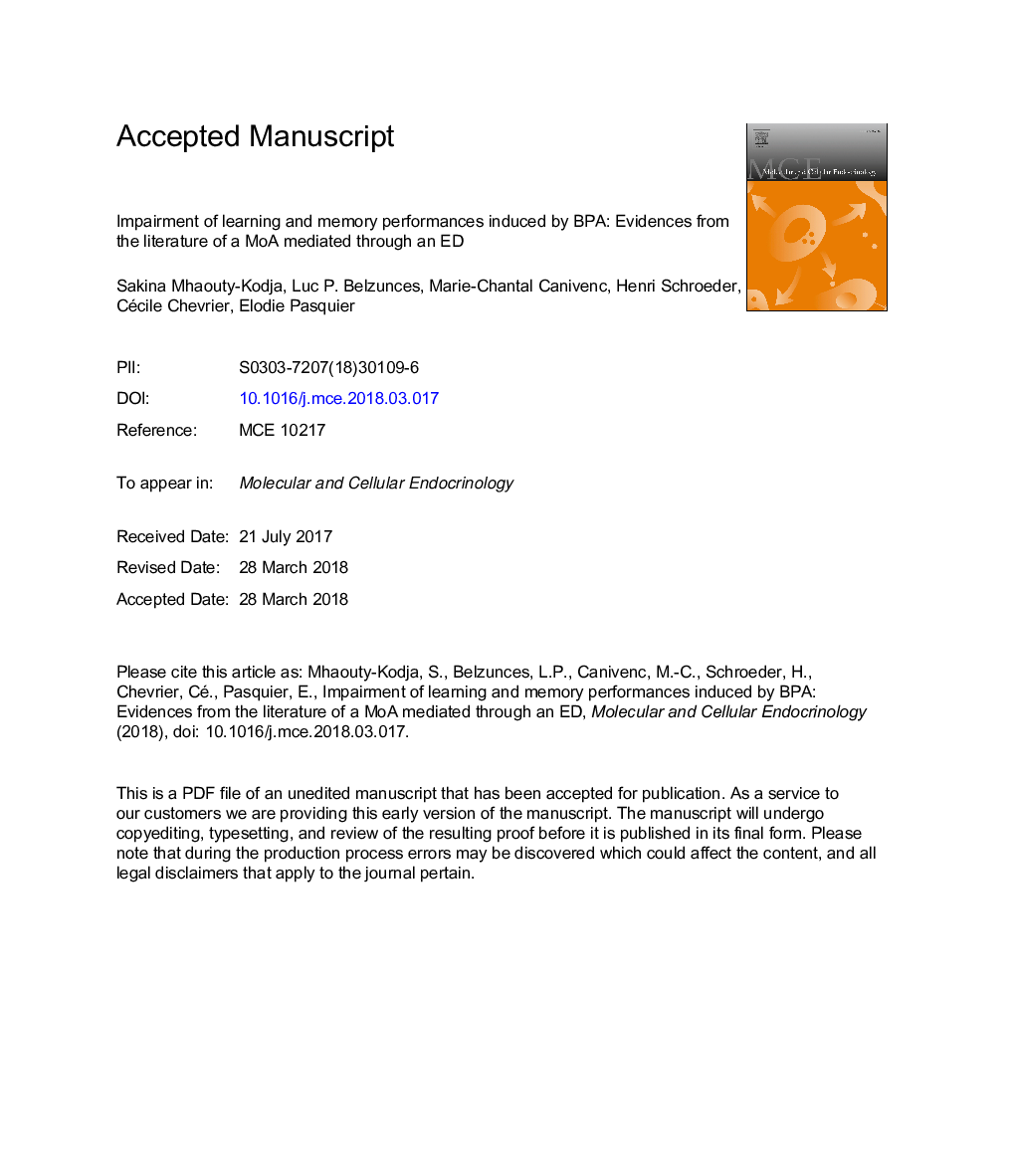| Article ID | Journal | Published Year | Pages | File Type |
|---|---|---|---|---|
| 8950007 | Molecular and Cellular Endocrinology | 2018 | 54 Pages |
Abstract
Many rodent studies and a few non-human primate data report impairments of spatial and non-spatial memory induced by exposure to bisphenol A (BPA), which are associated with neural modifications, particularly in processes involved in synaptic plasticity. BPA-induced alterations involve disruption of the estrogenic pathway as established by reversal of BPA-induced effects with estrogenic receptor antagonist or by interference of BPA with administered estradiol in ovariectomized animals. Sex differences in hormonal impregnation during critical periods of development and their influence on maturation of learning and memory processes may explain the sexual dimorphism observed in BPA-induced effects in some studies. Altogether, these data highly support the plausibility that alteration of learning and memory and synaptic plasticity by BPA is essentially mediated by disturbance of the estrogenic pathways. As memory function in humans involves similar signaling pathways, this mode of action of BPA has the potential to alter human cognitive abilities.
Keywords
GluNLPPN-acetylcysteinNRXN1ERKSLC6A4MOAAMPAMSCAtph2CaMKIVBPAMWMCRTC1MAOOVXNMDAN-methyl-d-aspartateMPFCICRKCC2McCarthy Scales of Children's AbilitiesP450aromMaze testNACGSHdbpANlgn3mRNACREB5α-RERRγPNWPSDPND17-β estradiolBDNFMAPKAChEAktEthinylestradiolEndocrine disruptionestradiol benzoateAcetylcholinesteraseα-amino-3-hydroxy-5-methyl-4-isoxazolepropionic acidgamma-aminobutyric acidlong-term depressioncornu ammonisBrdUbromodeoxyuridineBisphenol AObject recognitionlong-term potentiationMode of actionANSESDopaminemessenger ribonucleic acidgestation daypostnatal dayserotonin transporterNervous systemBrain-derived neurotrophic factorObject placementMorris water mazeLTDendocrine disruptorSubcutaneous routeinstitute of cancer researchmonoamine oxidase ANitric oxidepostnatal weektryptophan hydroxylase 2body weightcAMP response element-binding proteinprotein kinase Bmitogen-activated protein kinasePost synaptic densityextracellular-signal-regulated kinaseGABAEstrogen-related receptor gammaGlutathioneAndrogen ReceptorEstrogen receptorglucocorticoid receptorLearning and memory
Related Topics
Life Sciences
Biochemistry, Genetics and Molecular Biology
Cell Biology
Authors
Sakina Mhaouty-Kodja, Luc P. Belzunces, Marie-Chantal Canivenc, Henri Schroeder, Cécile Chevrier, Elodie Pasquier,
